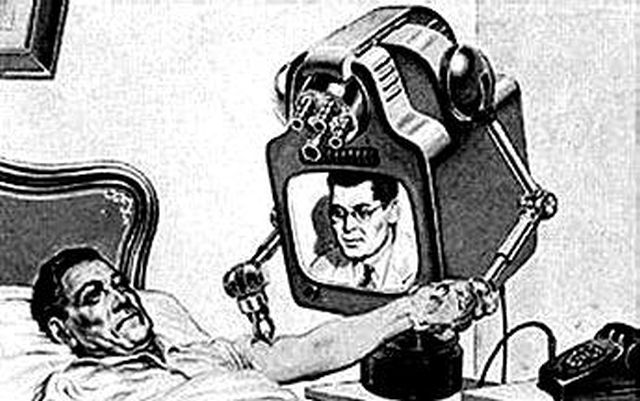Exploring the Benefits and Obstacles of Teledoctors in Modern Medical Care
As the healthcare landscape advances, teledoctors have arised as an essential part in linking voids in medical gain access to and efficiency. Exactly how can the health care sector balance these advantages with the intrinsic challenges?
Expanding Access to Care
Telemedicine has actually become a crucial technology in contemporary medical care, considerably expanding accessibility to care for diverse populaces. By leveraging electronic modern technology, teledoctors have actually changed the traditional health care distribution version, making it possible for people in underserved or remote locations to receive prompt medical consultation. This advancement is specifically advantageous for individuals staying in country neighborhoods, where the shortage of healthcare centers and professionals typically causes delayed or inadequate therapy.
Teledoctors contribute in bridging the space produced by geographical barriers. With digital consultations, clients can access a large array of healthcare solutions without the demand for extensive traveling. This is especially advantageous for those with movement problems or persistent conditions needing constant clinical attention. Moreover, telemedicine enhances continuity of treatment by allowing normal follow-ups and monitoring, consequently enhancing patient results.
The integration of teledoctors right into health care systems likewise sustains the management of public health situations by assisting in fast response and triage. Throughout pandemics, for instance, virtual consultations lower the problem on physical healthcare centers, lessening exposure threats for both clients and healthcare companies. As telemedicine remains to progress, it promises to improve the landscape of health care access, making it a lot more effective and comprehensive.
Cost-Effectiveness of Teledoctors
The cost-effectiveness of teledoctors is a significant variable driving their prevalent adoption in health care systems. By reducing the requirement for physical infrastructure and in-person sees, teledoctors provide an even more budget friendly alternative to conventional medical care delivery. This design permits health care carriers to lower functional costs, such as those linked with maintaining physical offices and employing comprehensive on-site personnel. teledoctors. Subsequently, these cost savings can be handed down to clients in the type of lowered appointment fees, making health care extra obtainable to a wider population.
Furthermore, teledoctors assist in a much more reliable use medical care resources by reducing unneeded emergency clinic check outs and health center admissions. Clients can access timely assessments for small disorders or follow-up care, which helps to reduce the concern on overstretched healthcare facilities. This efficiency not only leads to cost financial savings for medical care carriers but additionally lowers the financial strain on individuals that may otherwise face pricey health center bills.
Additionally, teledoctors can assist in managing persistent illness better by providing consistent surveillance and prompt interventions. This aggressive technique can protect against difficulties, consequently decreasing long-lasting treatment prices. On the whole, teledoctors provide a feasible solution to the rising expenses of medical care, while maintaining quality treatment delivery.
Enhancing Individual Benefit
While cost-effectiveness plays a pivotal role in the rise of teledoctors, boosting individual convenience stands as one more engaging advantage of this healthcare version. With the combination of teledoctors, patients can bypass the commonly time-consuming procedure of organizing and going to in-person appointments. This design removes the demand for travel, minimizing time spent in transit and waiting areas, thereby using basics substantial time financial savings for patients. Specifically for those with movement problems or staying in remote areas, teledoctors supply an important link to medical care that could otherwise be hard to reach.
Moreover, teledoctors use versatile scheduling, enabling individuals to prepare appointments at times that ideal fit Recommended Site their expert and personal dedications. This adaptability is invaluable for people balancing demanding job timetables or family duties, ensuring that health care can be integrated flawlessly into their lives. Furthermore, the capability to accessibility doctor from the comfort of one's home can bring about enhanced person engagement and adherence to treatment plans, as the obstacles to seeking care are minimized.
The ease offered by teledoctors not just boosts the individual experience yet also contributes to a more reliable and receptive medical care delivery system, ultimately sustaining better health outcomes.
Attending To Privacy Problems
Amid the expanding fostering of teledoctors, personal privacy problems arise as a substantial consideration. As medical care significantly relies upon digital platforms, ensuring the confidentiality of person info comes to be extremely important. The digitization of clinical records and using telecommunication innovations necessitate durable safety and security steps to safeguard sensitive information from unapproved gain access to and breaches.
Doctor need to abide by stringent regulations, such as the Wellness Insurance Policy Mobility and Responsibility Act (HIPAA) in the United States, which establishes nationwide requirements for guarding clinical information. Conformity with such guidelines is important in keeping client count on and guaranteeing their information is managed sensibly. File encryption of data, protected interaction networks, and normal audits are some of the procedures that can be executed to improve information defense.
In spite of these actions, challenges continue. Cybersecurity risks are developing, and health care organizations have to stay cautious to new vulnerabilities. Furthermore, educating both individuals and doctor regarding finest practices in data personal privacy is necessary. This includes understanding the restrictions of electronic communication and the value of secure login credentials. teledoctors.
As teledoctors end up being extra integral to healthcare shipment, attending to personal privacy problems is important to ensure both Continue the efficacy and dependability of these solutions.

Browsing the Digital Divide
Linking the digital divide is an important challenge in the prevalent fostering of teledoctors. teledoctors. This divide incorporates disparities in access to electronic technology, especially among rural, low-income, and elderly populaces. These teams often lack the necessary tools, dependable internet connection, or electronic proficiency needed for reliable engagement in telehealth solutions. Consequently, the benefits of teledoctors-- such as enhanced access and convenience-- remain unreachable for many people that might most take advantage of them.
In addition, efforts to support innovation for low-income houses can play a critical duty in guaranteeing fair access. Medical care service providers and area organizations must collaborate to provide electronic literacy programs, empowering individuals to navigate telehealth platforms with confidence.

Final Thought
The assimilation of teledoctors into contemporary healthcare provides substantial advantages, including raised access to care, cost-effectiveness, and boosted individual comfort. Nonetheless, difficulties such as personal privacy problems, the electronic divide, and cybersecurity hazards should be addressed to make the most of these advantages. By carrying out robust data protection actions, enhancing electronic proficiency, and making sure safe and secure technical infrastructure, the possibility of teledoctors can be totally understood, advertising equitable health care shipment and changing the medical care experience for all individuals.
Comments on “Finest Teledoctors Platforms for Virtual Wellness Consultations”